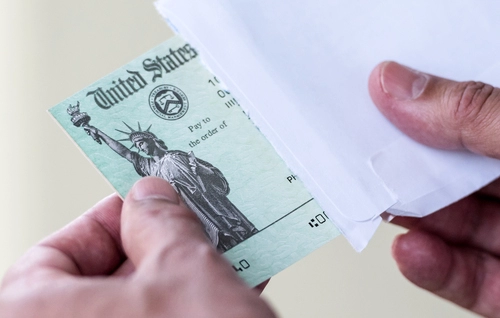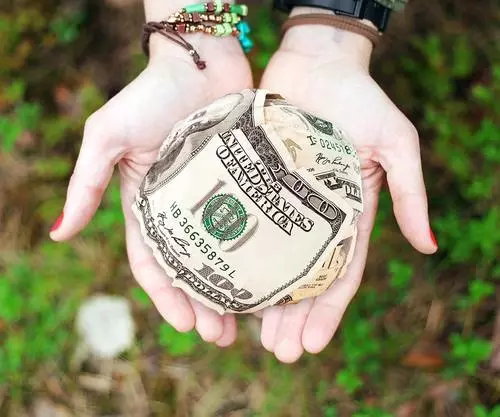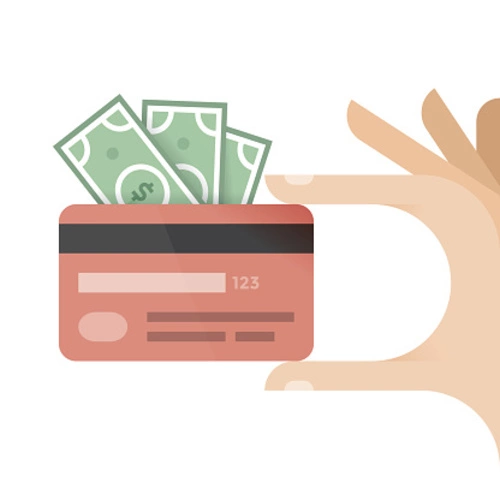1. Select a discrete app icon.

notes
Ask Amanda: How Do I Rebuild My Finances After Abuse?
Anxiety takes over every time one survivor thinks about facing her finances
- Feb 15, 2021

Q: I’m a survivor and feel stuck, financially, after what 2020 dealt us all. Even though I’m feeling empowered by leaving an abusive boyfriend and starting over on my own, I’m scared by how much debt I’m in (mostly my ex-boyfriend’s fault), and my credit score is in the gutter. I’m unemployed and living in an apartment (though actively job searching) and I want to save up for a down payment on a house for me and my daughter. But every time I even think about these obstacles in my way, anxiety takes over and I put it off for another time. Is this something related to the abuse or are finances just scary? – A.H.
A.H.,
I mean, both, to answer your question. Trauma can manifest in lots of different ways and can spread its effects out over months or years, if not a lifetime. Trauma is annoying in that way.
But also, personal finances can be intimidating. Who’s not afraid of running out of money? Maybe Beyoncé. But for the rest of us, money is something that comes into our life and goes out of it often at the same speed. We have it, then we don’t. There’s always another bill, another purchase, another unexpected expense.
After everything we endured collectively in 2020, feel free to cut yourself some slack as you rebuild your finances, first of all. You left an abusive partner! You started over on your own as a single parent! You lost your job but are “actively searching” for another one, which means you have ambition! All the applause for you, A.H.
Let’s talk fear for a second. I used to be afraid of flying. I would work myself up about it for days beforehand. But I forced myself, pre-COVID at least, to get on a plane whenever the opportunity to travel presented itself. I clenched the armrests, breathed deeply and got through it. Every flight got a little easier until one day, I was able to fly across an entire ocean. By confronting my fear, I began to train my brain into trusting that flying wasn’t something I needed to be afraid of.
It’s a concept that can be applied to any number of things that cause us anxiety, including rebuilding your finances after abuse. You can literally rewire your anxious brain by confronting your fear in small doses. You don’t have to have all the answers to your financial future right now, but at least start the process.
Leah Davis is a financial coach for women of color and takes a trauma-informed approach in her wealth and wellness coaching. “I help them connect the dots between flight, fight and freeze in relation to money management.”
The situation you’re describing—not being able to even think about your finances, is a type of freeze mode, and Davis says the culprit is trauma.
A survivor of domestic violence in both her childhood and adult life, Davis says she, too, experienced financial collapse after abuse before building it back up piece by piece after escaping. She says that finding financial freedom starts by healing the wounds that are preventing you from being able to make sound money decisions. That might include therapy or a support group (there are even online groups like our Facebook survivor group).
“You can read all the stuff on financial literacy but it’s like a band-aid on a very large wound. You have to heal that wound. Get micro on your own healing and also help your children.”
By micro, she means taking care of yourself and your daughter first and foremost. Are you safe? Do you have a support system? Are you getting enough sleep, eating healthy and taking care of your body? These things, says Davis, go a long way toward starting to heal your whole self.
“A huge part of healing, especially financially, is from within,” Davis says.
Though it may seem counterintuitive to invest money in a financial coach, if it’s possible, this can help you get back on track for the long-term.
“When someone has coaching, it gives them the ability to let go of any shame they may have around their financial situation,” says Davis. As opposed to financial advisors who do more of the direct recommendations on where to save or invest money, coaches like Davis focus on a client’s behaviors and habits around money, whether they have no money or millions in the bank.
Donate and change a life
Your support gives hope and help to victims of domestic violence every day.
“It’s about the day-to-day finances—coaches meet you exactly where you are and help you create the financial situation you’re striving for. It’s about shifting the relationship with themselves and money.
As a result, Davis says the women she works with start loving themselves more and see their confidence around handling money skyrocket.
If it’s not possible right now to hire a financial coach, A.H., you can also start by taking some small steps toward facing your financial issues.
- Make a household budget, putting some money aside each month toward savings and paying down your debt. Consider the snowball method where you pay off your smallest debt first.
- Take these eight steps to rebuild your credit.
- Look at the Compensation Compass to see if you’re eligible for any funding set aside for survivors of abuse.
- Revamp your resume and resend to potential employers.
- Consider turning any talents you have into a profitable business. Read “From Survivors to CEOs” for stories on how survivors have done this.
Above all else, grant yourself some patience and grace. Overcoming trauma is no small feat, but you’re taking all the right steps toward creating a safer more prosperous future for you and your daughter. As Davis says, “You have to be willing and ready and open to the possibility that you’re on the right path. That takes learning how to trust yourself—for someone who has experienced violence, it’s very difficult to trust yourself and others.”
Have a question for Ask Amanda? Message us on Facebook, Twitter or email AskAmanda@DomesticShelters.org.
Ask Amanda is meant to offer helpful resources and information about domestic violence. If in crisis, please reach out to your nearest domestic violence shelter for the guidance of a trained advocate.
Looking for someone to speak with? Enter your location to find phone numbers for domestic violence experts in your area.
Have a question about domestic violence? Type your question below to find answers.







